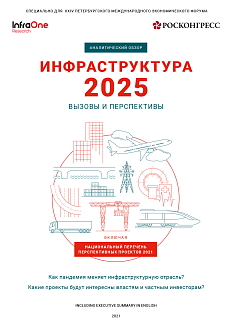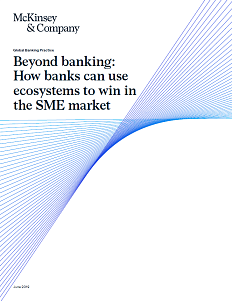Two significant events occurred last spring. The first was the Boeing 773 MAX 8 plane crash in Ethiopia, shortly after another plane of this model had crashed because of its automatic flight control system. The second was that, by the end of March, 1% of the population of the Peoples Republic of China, or 13.5 million people, were included in the list of untrustworthy persons in the countrys national social trust system.
These two very different situations are examples of the growing use of artificial intelligence (AI) in systems that make ethically important decisions. Peoples fates, even life or death moments, are increasingly dependent on systems that involve some elements of AI.
The further development of this trend will require a fundamental transformation of our ethical systems. This is our primary challenge. We are creating a society where human ethics will be altered through the integration of AI into the process of making crucial decisions.
In other words, each person will need to get an explanation of why vital decision-making by AI systems is acceptable, beneficial, desirable, and, in the long run, fair.
This is a horrible choice. And, in a certain sense, our technological civilization no longer has any other option.
The collapse of ethical systems
The issue of ethical transformations due to AI was brought to the table at the moment when ethical systems from previous waves were in the process of collapsing.
This also includes the traditional ethical systems formed during the rise of agrarian societies. The system of answers to the meaning of life for a person whose life ended around the age of 3540 is not very fitting for a person who will live an average of 7080 years and for whom 3540 is a period of psychological and physiological development and of painful re-evaluation of ones own path.
Previous answers to the question Why must I spend invaluable hours of my life on one or the other type of collectively approved behaviour? are becoming increasingly unsatisfying to people across a variety of strata and from very different societies around the world.
Whats more, its not just that old answers are out of date,change is happening at such a pace that previous mechanisms for the transmission of these answers is also deteriorating. The system of passing values, knowledge, and skills from generation to generation is failing time and time again, because, all too often, the experiences being passed on lose their value before there is a demand for them.
A simple example. The first iPhone was presented in 2007. Over the next decade, smart phones radically transformed the model of consumption, forcing whole industries to change from taxis and retail to media and political campaigns. In the next decade, technologies, fueled in part by AI, will create even greater changes in the world.
The world has entered the concluding stage of a grand transition, starting essentially from the price revolution and manifesting as three processes: urbanization, industrialization, and globalization. This short (historically speaking) period may lead to the illusion of the existence of a social economic optimum that can and should be returned to.
Depending on their ideological preferences, people either point to the 19701980s or 19902000s. Both groups are wrong. Its impossible to remain in a transition period or return to one.
Cognitive race
In 2017, researchers from Stanford University (USA) organized an experiment. A group of 30 volunteers made decisions about the funding of 36 Kickstarter projects. Their goal was to guess which projects would and wouldnt be successfully funded. Whats more, these people were competing against a special algorithm.
The people lost. Their predictions matched the real outcome 52.9% of the time. The algorithm was able to predict the outcome with an accuracy of 59.1%.
What is the most surprising thing about the results of this experiment? Its not the victory of artificial intelligence. Its the fact that the cognitive surplus of the human mind, when guessing the future, was only able to exceed a random 50/50 chance by 2.9%
Our civilization is built upon these three percent. Everything else is the law of large numbers: a vast number of people and a colossal number of attempts, hypotheses, and experiments, trials and errors over the course of a vast number of centuries. Imagine now a civilization built not on these three percent
of cognitive surplus, but on nine percent. Clearly, the societies that will be the first to effectively include AI in their management systems will benefit from significant competitive advantages and will be able to increase the speed with which they develop.
The quantity and speed of transactions performed and the quantity and speed of decisions made are constantly growing. For example, the aforementioned Chinese social trust system has already blocked the purchase of 20.5 million plane tickets and 5.7 train tickets by untrustworthy citizens.Public transport, jurisprudence, medicine all these sectors are actively working towards implementing AI-based systems.
Does this mean that increasingly less intelligent people will become dependent on increasingly intelligent machines?
Thats the wrong question. In reality, falling individual IQ scores is not a sign that people are becoming less intelligent. The issue is that human reason has a group element to it. Higher cognitive function is excessively energy intensive (the brain consumes 20 to 40% of a bodys energy) and, looking at a species, it only pays off in the presence of societies.
Humans with their cognitive surplus of three percent are probably fairly intelligent, rather than completely reasonable. Essentially, formally speaking, a 15th or 18th century person can be considered less intelligent than a 20th century person, but the Renaissance and Enlightenment are the products of our less intelligent predecessors.
The right question exists on a completely different plane. We already live in a world where saying that pilots control airplanes is an arguable statement. Where the question of keeping human pilots on board is no longer a technical issue, but a passenger relations issue. A symbol of, in part, how much airlines value the lives of their clients.
In reality, the question is how can we adapt our understanding of ethics to reality, when an increasing number of critical questions are answered by AI systems? In other words, how can we avoidlosing our humanity in this new reality?
Anlytics on the topic

Infrastructure in a post-COVID-19 economy: has the pandemic affected Russian authorities and private investors’ plans? What will be infrastructure development scenario by 2025? What initiatives will become the milestone projects?

Eugene Kaspersky, cybercrime expert and General Director of Kaspersky Lab, on the most important phenomenon of Industrial Revolution 4.0, the ‘sovereign internet’ and transparency centres.

The study by KPMG is focused on how leaders and businesses are reinventing themselves to adapt to the new reality of a rapidly digitalizing post-COVID world. According to KPMG, the motto for the future must be: «Connected. Powered. Trusted».

The work by the McKinsey & Company consultancy explores SME development, challenges faced by SMEs, and the process of building an effectual ecosystem which would help businesses meet the challenges and would, at the same time, be profitable for banks.


